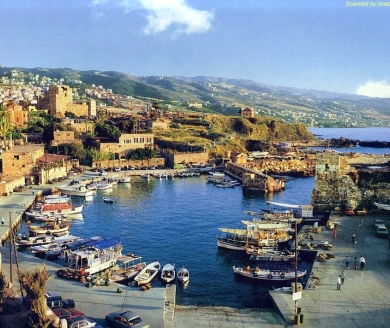 The City of Byblos, with support from 100 Resilient Cities – Pioneered by the Rockefeller Foundation (100RC), released the first resilience strategy in the Middle East from the first office of resilience in the region; Byblos.
The City of Byblos, with support from 100 Resilient Cities – Pioneered by the Rockefeller Foundation (100RC), released the first resilience strategy in the Middle East from the first office of resilience in the region; Byblos.
The plan is an actionable strategy for the city to tackle numerous vital issues, including building a digital infrastructure, managing safety risks, threats and civil unrest, protecting the city’s historical assets and strengthening the city’s role in regional economic development.
Byblos was selected as one of the first 32 members of what will ultimately be a 100-city global network, and is receiving technical support and resources to implement the resilience strategy.
Byblos Resilience Strategy serves as a tactical guide for the city’s future. It identifies initiatives, actions, and solutions that will enhance the city’s resilience. 100 Resilient Cities is committed to working with Byblos to implement the unique vision laid out in this strategy. This is the first Resilience Strategy in the Middle East, coming out of the first Resilience Office in the Middle East, and it’s an exciting moment for both the City and 100 Resilient Cities. The city’s resilience strategy sets out five strategic pillars that will address the city’s physical, environmental, economic, societal and political shocks and stresses that will affect the city’s assets. Each pillar is supported by actions and initiatives.
The five pillars of the City’s strategy are:
1. Connected City; Byblos will be a city that pioneers innovative and inclusive urban solutions through building its digital infrastructure, connecting the city’s neighborhoods and limit urban sprawl and designing a blue-green network throughout the city.
2. Resourceful City; the city will be a resource efficient city that optimizes ecosystem services through demonstrating environmental responsibility and promoting stewardship by citizens and investing in efficient and renewable energy.
3. Peaceful City; It will encourage civic engagement and participation in decision making, manage security risks, threats and civil unrest and promotes social networks and relationships within and between the communities.
4. Cultural City; the city will develop measures and guidelines to protect its historic assets and coastal heritage and will use culture, heritage and traditions in Byblos as catalyst for economic and social development.
5. Thriving City; Byblos will promote diversification into sectors that will enable it to be more active within the global economy, it will strengthen the city’s role in regional economic development and will improve the quality of life for Byblos’ residents.